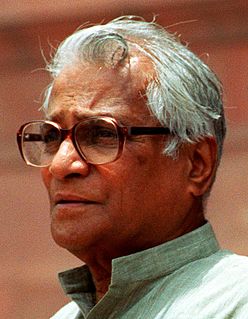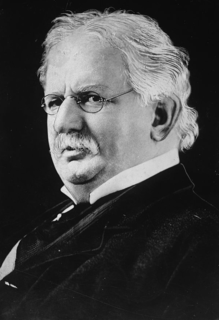A Quote by Jorge Luis Borges
Whoever would undertake some atrocious enterprise should act as if it were already accomplished should impose upon himself a future as irrevocable as the past.
Quote Topics
Related Quotes
I foresee that man will resign himself each day to more atrocious undertakings; soon there will be no one but warriors and brigands; I give them this counsel: The author of an atrocious undertaking ought to imagine that he has already accomplished it, ought to impose upon himself a future as irrevocable as the past.
And we should forget, day by day, what we have done; this is true non-attachment. And we should do something new. To do something new, of course we must know our past, and this is alright. But we should not keep holding onto anything we have done; we should only reflect on it. And we must have some idea of what we should do in the future. But the future is the future, the past is the past; now we should work on something new.
Whoever would not remain in complete ignorance of the resources which cause him to act; whoever would seize, at a single philosophical glance, the nature of man and animals, and their relations to external objects; whoever would establish, on the intellectual and moral functions, a solid doctrine of mental diseases, of the general and governing influence of the brain in the states of health and disease, should know, that it is indispensable, that the study of the organization of the brain should march side by side with that of its functions.
Do not be afraid of the past. If people tell you that it is irrevocable, do not believe them. The past, the present and the future are but one moment in the sight of God, in whose sight we should try to live. Time and space, succession and extension, are merely accidental conditions of thought. The imagination can transcend them.
Whoever controls the image and information of the past determines what and how future generations will think; whoever controls the information and images of the present determines how those same people will view the past." "He who controls the past commands the future. He who commands the future conquers the past.
It makes him contemptible to be considered fickle, frivolous, effeminate, mean-spirited, irresolute, from all of which a prince should guard himself as from a rock; and he should endeavour to show in his actions greatness, courage, gravity, and fortitude; and in his private dealings with his subjects let him show that his judgments are irrevocable, and maintain himself in such reputation that no one can hope either to deceive him or to get round him.
If children were brought into the world by an act of pure reason alone, would the human race continue to exist? Would not a man rather have so much sympathy with the coming generation as to spare it the burden of existence, or at any rate not take it upon himself to impose that burden upon it in cold blood?
For the protection of the community, of individual life and health, there are some necessities that should be provided for all at the expense of all, such as roads, pure water, and sanitary systems for concentrated population, and reasonably comprehensive mail service. The determination between services that should be operated by the government and those which should be left to private enterprise under proper control should be governed by the degree of necessity to the community as a whole.
If you never left anything or anyone there would be no room for the new. Naturally, to move on is an infidelity -- to others, to the past, to old notions of oneself. Perhaps every day should contain at least one essential infidelity or necessary betrayal. It would be an optimistic, hopeful act, guaranteeing belief in the future -- a declaration that things can be not only different but better.





































